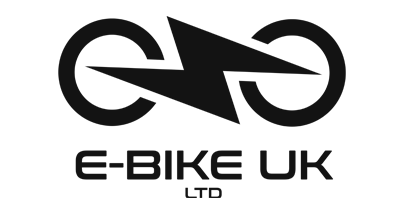In recent years, transportation has taken a significant leap forward with the advent of electric bicycles, commonly known as e-bikes. These innovative machines are revolutionising how we traverse urban landscapes, offering an eco-friendly, cost-effective, and surprisingly fun alternative to traditional modes of transport. As the world becomes increasingly conscious of environmental issues and urban congestion, e-bikes are becoming a viable solution for many. But what exactly is an e-bike, and how does it differ from traditional bicycles?
The Basics of E-Bikes
An e-bike is a bicycle equipped with an electric motor that assists the rider. This motor is typically powered by a rechargeable battery and is designed to augment human power, not replace it. The core idea is to make cycling less daunting, especially over long distances or steep inclines, and to make it more accessible to a broader range of people.
Components of an E-Bike
- Motor: The heart of an e-bike, the motor can be located in the front or rear wheel hub or mounted in the centre of the bike. Hub motors are more common in budget-friendly models, while mid-drive motors, which drive the crank, offer a more natural riding experience and better balance.
- Battery: Usually mounted on the frame, the battery powers the motor. The range of an e-bike depends on the battery capacity, measured in watt-hours (Wh). The higher the number, the longer the bike can go on a single charge.
- Controller: This component manages the power flow from the battery to the motor. It is usually integrated into the e-bike's display or handlebars, allowing riders to select different levels of motor assistance.
Types of E-Bikes
- Pedal-Assist: The most common type, where the motor only engages when the rider is pedalling. This offers a more intuitive riding experience and helps conserve battery life.
- Throttle-Based: These e-bikes can be propelled forward without pedalling, much like a scooter. However, they are subject to stricter regulations in many regions.
- Speed Pedelecs: High-performance e-bikes that can reach higher speeds, making them suitable for longer commutes.
Benefits of E-Bikes
- Eco-Friendly: E-bikes contribute to reduced carbon emissions, making them an environmentally friendly option for commuting.
- Health Benefits: While the electric motor assists in pedalling, riders still get a good workout, making e-bikes an excellent option for physical fitness.
- Cost-Effective: Compared to cars or public transportation, e-bikes are a more economical choice in the long run, especially considering the low cost of recharging batteries.
- Accessibility: E-bikes open up cycling to a broader audience, including those deterred by physical limitations or the challenge of steep terrain.
Navigating the Legal Landscape
The legal status of e-bikes varies from region to region. In many places, they are classified similarly to traditional bicycles, but there can be specific regulations, especially concerning speed limits and whether helmet use is mandatory. E-bike users must familiarise themselves with local laws to ensure safe and legal riding.
Choosing the Right E-Bike
When selecting an e-bike, consider the following:
- Purpose: Are you commuting, going off-road, or looking for a leisurely ride around the city? Different models cater to different needs.
- Battery Range: Ensure the battery life suits your daily travel distance.
- Motor Type: Decide between a hub or mid-drive motor based on your preference for performance and price.
- Comfort and Design: Look for a model that suits your aesthetic preference and physical requirements.
The Future of E-Bikes
The e-bike market is rapidly evolving, with advancements in battery technology, motor efficiency, and overall bike design. The future may see even more innovative features like integrated GPS systems, advanced safety features, and enhanced connectivity options.
Conclusion
E-bikes represent a fusion of traditional cycling with the benefits of modern technology, offering a sustainable, healthy, and enjoyable way to navigate the urban environment. As cities continue to evolve and the collective consciousness shifts towards more eco-friendly lifestyles, e-bikes stand out as a critical player in the future of urban mobility. Whether for commuting, fitness, or leisure, e-bikes offer a compelling alternative to traditional transportation methods, promising a greener, healthier, and more efficient future for city dwellers worldwide.





